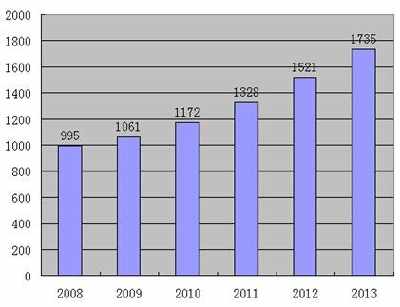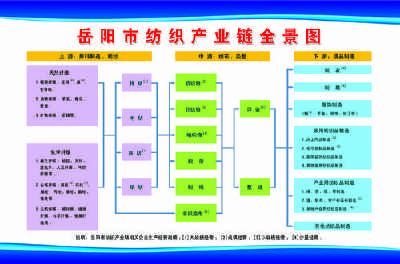Unit 2 How often do you exercise?
第二节
1 .垃圾联合国。无用的东西;无花果
他扔掉了 所有的垃圾
厨房。
他扔掉了厨房里所有的垃圾。
垃圾食品
太多垃圾食品
我们不应该吃垃圾食品。
我们不应该吃垃圾食品。
2.咖啡
咖啡un。
喝杯咖啡吗?
喝杯咖啡吗?
黑咖啡(不加牛奶的黑咖啡)
咖啡cn。一杯咖啡
地方咖啡豆
我们要两杯茶和一杯咖啡。
我们想要两杯茶和一杯咖啡。
3.健康。人体
或者上帝的状态
健康健康健康
健康联合国。
垃圾食品对我们的健康有害。
垃圾食品对我们的健康有害。
健康比什么都重要
财富。
健康比财富更重要。
健康就是健康
他身体很好。他身体很好。
身体不好就是不健康
保持健康
保持健康
健康的;健康的
同义词:健康的
比较水平,最高水平:健康最健康
它可以用作定语、表语和宾语补足语。
作为定语
ze:15px;"> a healthy baby 健康的婴孩healthy food 健康的食物
healthy lifestyle健康的生活方式
have a healthy eating habit
有健康的饮食习惯
eat a healthy breakfast
吃健康的早餐
◆作表语
be healthy 是健康的
keep/stay healthy
=keep fit 保持身体健康
It is very important for us to
keep healthy.
保持身体健康对我们很重要。
◆作宾补
keep sb. healthy
让某人保持身体健康
keep us healthy
让我们保持身体健康
Do you know the ways to keep
us healthy?
你知道让我们保持身体健康的方
法吗?
③ healthily adv. 健康地
修饰行为动词,作状语。
比较级、最高级:more/most
healthily
◆ live healthily生活得健康
【注意】下面两个短语:
◆eat healthily 健康饮食
动词短语,可作谓语。
We should eat healthily.
我们应该健康饮食。
◆healthy eating 健康的饮食
名词短语,可作主语、表语、宾语等。
Healthy eating is very important
for us in our daily life.
健康饮食在我们的日常生活中非常
重要。
4.result [r'zlt] .结果;后果
result cn. pl. results
◆the result of ……的结果
The teacher told us the result of
the survey.
老师告诉了我们调查结果。
◆ as a result 结果
只能用a。
He had some bad meat. As a
result, he felt sick.
他吃了些坏肉,结果感到不舒服。
◆as a/the result of
=because of 由于……的结果
后接n./pron./doing,此用法用a
或the 均可。
He was late as a/the result of
the heavy rain.
=He was late because of the
heavy rain.
由于下大雨,他迟到了。
5.percent [p'sent] n.(=per cent)
百分之...
◆percent是可数名词,但通常用单
数形式。与数词连用时,数词应置
于percent之前。
◆基数词+percent of...作主语时, of
后接不可数名词,谓语动词用单数
形式; of后接可数名 词复数或代词
宾格复数,则谓语动词用复数形式。
Forty percent of them/us/you are
from China.
他们/我们/你们中百分之四十来自
中国。
Fifty percent of the students use
the Internet every day.
百分之五十的学生每天都上网。
Sixty percent of the tea is produced
in the south.
60%的茶叶产自南方。
◆同义句,注意疑问词。
What percent of the students use
the Internet every day?
=How many percent of the students
use the Internet every day?
百分之几的学生每天使用互联网?
6.online [n'lan] adj.&adv.在线(的);
联网(的)
① online adj. 在线的;联网的
online shopping 网上购物
online chatting 网上聊天
online education 在线教育;网上
教育;
play online games玩网络游戏
He is online the whole day.
他整天挂在网上。
②online adv. 在线;联网
He likes reading online.
他喜欢网上阅读。
He likes going/getting online.
他喜欢上网。
He likes shopping online(adv.).
=He likes online(adj.)shopping.
他喜欢网上购物。
7.television ['telvn] n.电视节目;
电视机
TV is short for television.
TV是television的缩写形式。
◆watch TV=watch television 看电视
8.although [l'] conj.虽然;
尽管;即使
although引导让步状语从句。
该从句不能像中文“虽然…但是…”
一样,组成 although…but…。
即although从句不能与并列连词but
连用,although和but只能用其中
一个。
◆同义句转换
Although he is busy, he tries to
help us.
=He is busy, but he tries to help us.
他尽管他很忙,他还是尽力帮助
我们。
【辨析】although/though
①用作连词,表示“虽然;尽管;
即使”,二者可互换,但although
比though更为正式。
Though/Although he lives alone,
he is happy.
=He lives alone, but he is happy.
=He is happy though/although he
lives alone.
虽然他一个人住,但他很快乐。
②though可作副词, 意为“可是,
不过”。
置于句末(不放在句首),其前常
有逗号;而although一般不用作副
词。
It's hard work,I enjoy it, though.
这是苦差事,可我喜欢。
③在even though(即使,纵然)固定
短语中, 不能用although代替
though。
Even though it was snowing,he
went to buy bread
尽管在下雪,他还是去买面包了。
9.through [θru] prep.以;凭借;穿过
①through prep.以;凭借
◆through+n./pron./doing
The best way to relax is through
exercise.
最好的放松方式是通过锻炼。
We get a lot of information
through the Internet.
我们通过互联网得到很多信息。
◆through doing=by doing
He learned to cook through/by
watching his father in the ketchen.
他通过在厨房观察父亲做饭来学
习烹饪。
②through prep.穿过
【辨析】across 、through、past
①across prep.过;穿过;横过
指从物体表面的一边“横过”到另
一边;含义与on有关。
across the road/street/bridge/
river/square
穿过马路/大街/桥/河/广场
② through prep.穿过;从…中穿过
指从空间的一头纵穿到另一头;含
义与in有关。
through the forest/woods/window
/gate/doorhpark/crowd/village
穿过森林/树林/窗户/大门口/门口/公
园/人群/村庄
They walked through the park
together. 他们一起步行穿过公园。
③past prep.& adv.经过;路过
指从旁边经过或路过。
go past the bank
=pass the bank 路过银行
He walked past quickly and didn't
say hello to us.
他快速走过去,没有向我们打招呼。
10.mind [mand] .头脑;心智
◆change one's mind 改变想法
◆in one's mind 在某人心里,在某人
脑海里
You are the best in my mind.
在我心目中你是最棒的。
◆keep …in mind 牢记;记住
Please keep them in mind.
请把它们牢牢记住。
【拓展】mind v. 介意
① Never mind . 不介意。
用来回答sorry。
②mind doing
Would you mind closing the door?
你介意把门关上吗?
11.body ['bdi] n.身体
body cn. pl. bodies
①表示与精神(mind)相对的“身体"。
His body is old, but his mind
is young.
他身体虽然老了,但心还很年轻。
◆body and mind
或mind and body 身心
Exercise is good for our mind and
our body.
锻炼对我们的头脑和身体都有好处。
②侧重指躯体、躯干等的“身体"。
keep our body warm 保持身体暖和
Everyone wants to have a healthy
body。
每个人都想拥有健康的身体。
12.such [st] adj.& pron.这样的;
那样的;类似的
such as例如;像…这样
表示举例,后接名词、代词、动名词。
即:such as+n./pron./doing
注意:
◆ 名词+such as+例子
I like fruit, such as apples, oranges
and grapes.
我喜欢水果,如苹果、桔子和葡萄。
◆也可为“such+名词+as+例子”。
I like such fruit as apples, oranges
and grapes.
我喜欢苹果、桔子和葡萄等水果。
◆若such as后接动词,通常用动名
词。
I like sports, such as running and
playing volleyball.
我喜欢运动,比如跑步和打排球。
◆不可按汉语意思将such as 用作such
like。
He is not such a fool as he looks.
他并不像他看起来那么傻。
◆such as 是不完全列举,其后不可
列出前面所提过的所有东西。
正:I know four languages, such as
French and English.
我懂四种语言,如法语、英语。
误:I know four languages, such as
Chinese, French, Japanese and
English.
【辨析】so…that与such…that
如此…以至于…
that后都接从句,so…that与such…
that的区别,其实就是so与such的区
别。
so 和such词性不同。such是形容词,
修饰名词;so是副词,修饰形容词或
副词。
①so…that
◆so+adj./adv. + that + 从句
This book is so interesting that
I have read three times.
这本书如此有趣以至于我读了三遍。
He spoke so quickly that I couldn't
understand him.
他说得如此快以至于我不明白他。
◆so+many/few+复数名词+that
so+much/little+不可数名词+that
There are so many people in the
park that it's hard for me to find
him 。
公园里有那么多人,我很难找到他.
He had so little money that he
spent his days at home.
他没什么钱,以至于整天呆在家里。
◆so+adj.+a/an+单数名词+that+从句
She is so lovely a girl that everyone
loves her.
她是如此可爱的一个女孩,以至于大
家都喜欢她。
② such…that…如此…以至于…
◆such+adj.+复数名词+that+从句
◆such+adj.+不可数名词+that+从句
◆such+a/an+adj.+单数名词+that+从
句
They are such kind people that we
all like them.
他们是那么善良的人以至于我们都
喜欢他们。
It is such fine weather that we
all want to go hiking.
天气这么好,我们都想去远足。
She is such a lovely girl that
everyone loves her.
她是如此可爱的一个女孩,以至每
个人都喜欢她。
【注意】
①such能直接修饰名词。
◆such+a/an+单数名词
◆such+复数名词
◆such+不可数名词
such a thing这样的事
such a man这样一个人
such things 诸如此类的事情
such tea 那样的茶
How can you make such tea?
你怎么能制成那样的茶?
②上述用法中,
so+adj.+a/an+单数名词
=such+a/an+adj.+单数名词
注意冠词位置。
She is so good a girl.
=She is such a good girl.
她是那么好的女孩。
That is so old a house.
= That is such an old house.
那是一栋如此古老的房子。
13.together [t'ɡe(r)] adv.在一起;
共同
◆修饰行为动词及其短语,置于其后。
act together共同行动
live together一起生活
play together一起玩耍
spend time together共度时光
work together一起工作
go home together 一起回家
get together 聚在一起;相聚
Let's go home together.
咱们一起回家吧。
Every weekend they get together
to have a big meal.
每周末他们聚在一起吃一顿大餐。
◆A together with B 与…一样
如果此短语出现在主语后面,谓语动
词的人称和 数只能和A保持一致,与
B无关。
Tom,together with his mother is
cooking in the kitchen.
汤姆和他妈妈正在厨房做饭。
14.die [da] v.消失;灭亡 ;死亡
◆ Old habits die hard.旧习难改。
此句为英语中的一句谚语。
◆ die是短暂性动词,不能和时间段
连用。常用于过 去时中,过去式为
died。
Plants and people will die without
water.
没有水,植物和人都会死。
His grandfather died in 1990.
他的祖父1990年去世。
【拓展】die v.→ dead adj.→death
n.→dying adj.
①dead adj. 死的
作表语,定语。
be dead 能与时间段连用。
He has been dead for ten years.
他死了10年了。
She looked at her dead dog sadly.
伤心地看着她死去的猫狗。
② dying adj. 将死的
This is a dying dog.
这是一只垂死的狗。
The doctors have saved the dying
man.
医生们救活了那个垂死的人。
③death n.死亡
The accident has caused a lot of
deaths.
那次事故造成很多人死亡。
He gave up studying after his
father's death.
◆the death of… 的死
He won't forget the death of his
dog. 他不会忘记他的狗死了。
15.writer ['rat(r)] n.作者;作家
①英语中,很多“动词+er”,变成名
词,即执行这个动作的人,如:
teach(v.教)→teacher(n.教师)
work (v.工作)→worker(n.工人)
cleaner清洁工; famer农民;
singer 歌手;reader 读者;
listener 听者;speaker 演讲者,说话的人;
climber 攀登者; painter 画家;
killer杀手; murderer谋杀犯;
thinker 思想家
②以e结尾的动词,只加r,变成执行这
个动作的人,如:
write (v.写)→writer (n.作者,作家,写
字的人)
driver 司机 ;dancer 舞者;organizer
组织者 ;maker生产者,制订者
③ 双写词尾辅音字母,再加er,变成执
行这个动作的人,如:
winner 获胜者; runner 跑步者
④但是有些动词+er,变成的名词是表
示某事物。
◆ cooker n.“ 厨具”;“厨师”是
cook。
◆drawer n. “抽屉”;“画家”是
painter,artist。
◆laughter n.“笑,笑声”;不是
“发出笑声的人”。
◆bread maker“ 面包机”,不是
“烤面包的人”。
◆CD player CD “播放机”,
player有两个中文意思:队员;播
放机。
16.dentist ['dentst] n.牙科医生
cn. pl. dentists
see a dentist 看牙医
go to the dentist 去看牙医
17.magazine ['mɡzin] n.杂志;
期刊
cn. pl. magazines
在书/杂志上,指书上的内容时,
用in。
in the magazine在杂志上
in the notebook 在笔记本上
in the textbook 在教材中
in the book 在书中
18.however [ha'ev(r)] adv.然而;
不过
【辨析】however和 but “可是,
但是”
意思相同,用法不同。
however比but用的场合更正式, 因
此however 用于书面语,而but 常用
于口语。
①however 是副词,不是连词,不能
直接连接两 个分句,必须另起新句,
并用逗号隔开。位置灵活:句首、句
中、句尾。
He is poor now.However,when he
was young he is rich in this town.
他是一个穷人。 然而,他在年轻的时
候在这个小镇很富有。
Money, however, is not everything.
然而,金钱并不是一切。
There is a big problem, however.
然而,有一个大问题。
②but是并列连词,连接两个互相对
比的并列分句,一般后面不用逗号
He likes coffee, but I really don't
like it.
他喜欢咖啡,但是我实在是不喜欢。
③另外, however还有“无论怎样,不
管如何”之意。but有“除了”之意。
However hard I worked, she was
never unhappy.
无论我多么努力地工作,她从来没
满意过。
There is nothing but a card in the
box.
盒子里除了一张卡片什么也没有。
19.than [n] conj.(用以引出比较的
第二部分) 比
◆用于比较级句型。
You are taller than him. 你比他高。
◆用于短语。
more than多于
less than 少于
more than/less than+ 基数词+复数名
词
more than/less than six days
20.almost ['lmst] adv.几乎;差
不多
①almost是常用的程度副词,可修饰动
词、形容词、副词、名词、代词、数
词或介词等。
②almost常置于被修饰词之前。修饰
动词时一般 置于主要动词之前,但要
放在系动词、助动词和 情态动词之
后。almost不能置于句末。
He waited for you for almost two
hours. 他等了你差不多两个小时。
I almost believe him.
我差点儿相信了他发。
He is almost eighty.
他将近80岁了。
③almost可与no, none, nobody,
nothing, never等否定词连用.
◆almost no one
Almost no one believed him.
几乎没人相信他的话。
④almost 常与every,any连用。
almost every day
almost everyone
almost every one
almost everything
almost anyone
Almost every family has a computer.
几乎每个家庭都有一台电脑。
21.none [nn] pron.没有一个;毫无
【辨析】none和 no one
①none既指人也指物,反义词是all;
而no one 只可指人。
②none 指代复数名词或代词宾格复数
作主语时,谓语动词既可用单数也可
用复数,多用单数。none指代不可数
名词时,谓语动词只可用 单数。
而no one作主语时,谓语动词只能用单
数形式。
③none与of连用
后接名词复数、不可数名词或代词宾
格复数. 而no one不能与of连用。
none of+us/you/them
none of+限制词+un.
none of+限制词+cn.
None of us is/are late.
None of the students has/have a
computer.
None of the money is mine.
④none用来回答how many +n., how
much +n. 以及含any+n. 的疑问句;
而no one可回答who及含anyone,
anybody的疑问句。
A: How many books are there on the
desk?
B: None.
桌子上有几本书?一本也没有。
A:Who is in that room?
B:No one. 谁在房间里?没有人。
【拓展】nobody
① nobody不定代词,“没有人”
nobody=no one
◆no one 更正式,nobody 口语中
◆两者均只能指人,不指物。
◆其后不接of短语。
◆作主语时,谓语动词用单数。
◆用来回答who,及含anyone,anybody
的疑问句。
No one/Nobody likes him。
没人喜欢他。
I knew nobody at the party.
在聚会上,我一个人都不认识。
No one/Nobody knows.
谁也不知道。
—Who is in the classroom?
—No one/Nobody.
—Is there anyone in the room?
—No one/Nobody.
◆ nobody=not…anybody
I know nobody here.
=I don't know anybody here.
我在这儿谁也不认识。
② nobody cn.小人物 pl. nobodies
They aren't afraid of a nobody like
you.
他们不害怕想你这样的小人物。
Only a few nobodies went to the
meeting.
只有几个无名小卒参加了会议。
22.less [les] adj.较少;较小
little的比较级、最高级:less least
◆less +un.
He has less free time than me.
◆less than少于
less than+ 基数词+可数名词
less than two hours
23.point [pnt] n.得分;点 v. 指;
指向
①point n.得分 cn. pl. points
◆ get 90 points 得90分
②point [pnt] n.点
◆指小数点,用单数形式。
4.23 读作 four point two three
23.4 读作 twenty-three point four
◆指要点
language points 语言点
important points 重点
difficult points 难点
③ point v. 指;指向
◆point at 指着
指向离说话人较近的事物,at是介词,
着重于指的对象.
Don't point at others with your
finger while talking .
说话时不要用手指着别人。
◆point to 指向
多指向离说话人较远的事物,to是介词,
着重于指的方向.
He pointed to the trees on the hill
and said,“They were planted two
years ago.”
他指着山上的树说:“两年前种的。”
注意:一般情况下point at和point
to可互换。
The teacher is pointing at/to the
map on the wall.
老师正指着墙上的地图。
但事物名词作主语时,用point to要常
见些.
Both the hour hand and the
minute hand point to twelve.It
was noon.
时针和分针都指向十二点,那是
中午。
◆point out 指出
The teacher pointed out many
mistakes in my homework.
老师指出我作业里的许多错误。
Claire 克莱尔
Sue 苏
American Teenager 《美国青少年》
























